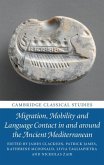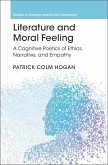Denounced by neighbors and scrutinized by demonologists, the early modern French witch also confessed, self-identified as a witch and as the author of horrific deeds. What led her to this point? Despair, solitude, perhaps even physical pain, but most decisively, demonology's two-pronged prosecutorial and truth-seeking confessional apparatus. This book examines the systematic and well-oiled machinery that served to extract, interpret, and disseminate witches' confessions in early modern France. For the demonologist, confession was the only way to find out the truth about the clandestine activities of witches. For the witch, however, trial confessions opened new horizons of selfhood. In this book, Virginia Krause unravels the threads that wove together the demonologist's will to know and the witch's subjectivity. By examining textual and visual evidence, Krause shows how confession not only generated demonological theory but also brought forth a specific kind of self, which we now recognize as the modern subject.
Dieser Download kann aus rechtlichen Gründen nur mit Rechnungsadresse in A, B, BG, CY, CZ, D, DK, EW, E, FIN, F, GR, HR, H, IRL, I, LT, L, LR, M, NL, PL, P, R, S, SLO, SK ausgeliefert werden.









